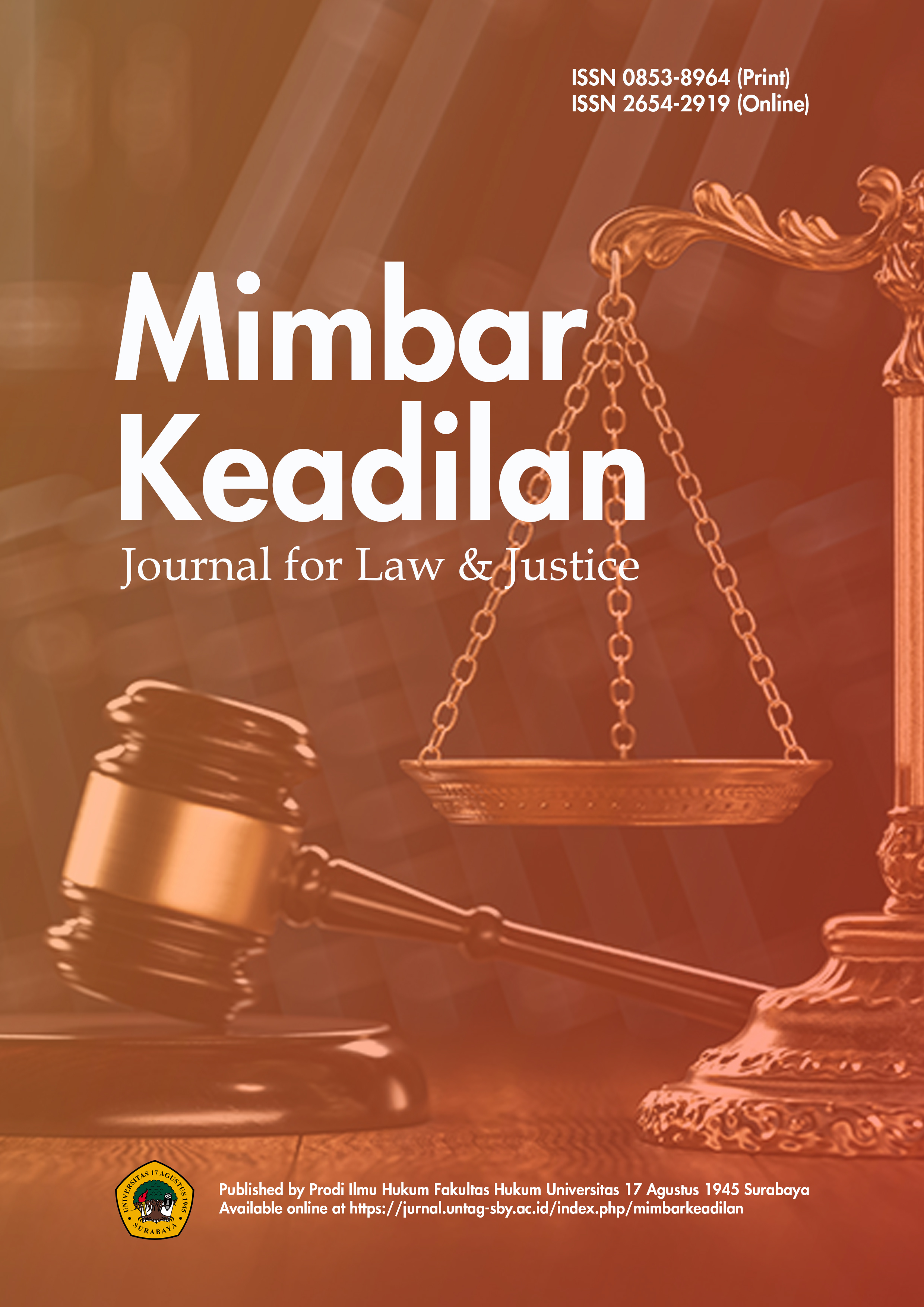The Legal Liability of Beauty Clinics in Achieving Justice for Consumers
DOI:
https://doi.org/10.30996/mk.v18i1.12271Keywords:
beauty clinics, consumer protection, justiceAbstract
Beauty clinics have become an integral part of modern lifestyles, offering aesthetic solutions to enhance self-confidence. However, alongside their popularity, several challenges have emerged, including health risks stemming from hazardous chemicals, malpractice, and inadequate professional competence. Widespread consumerism often overlooks safety aspects, driven by media-induced unrealistic beauty standards. In this context, legal protection for consumers utilizing beauty clinic services is of paramount importance. This study aims to analyze the legal liability of beauty clinics in safeguarding consumer rights, focusing on the application of justice principles. These principles encompass distributive justice, which demands equitable access to services without discrimination, and procedural justice, which ensures transparency and active consumer participation in medical decision-making. Employing a normative juridical method. The findings reveal that, despite existing regulations outlining the obligations of service providers, numerous beauty clinics fail to adhere to established standards. Consumers often suffer harm due to unsafe procedures or the use of unregulated beauty products. In such instances, the BPSK offers an effective mechanism for dispute resolution, providing mediation, conciliation, and arbitration services characterized by low costs and simplified procedures. From the perspective of justice, ensuring that all consumers have equal rights to clear information and safe services is imperative. Furthermore, strengthening consumer involvement in medical decision-making processes is critical to avoiding the dominance of paternalistic relationships between healthcare providers and patients. By enforcing robust legal protections and adopting a holistic approach to justice, consumer protection in beauty clinic services can be significantly enhanced. This would not only mitigate potential harm but also foster a more balanced relationship between consumers and service providers.
Downloads
Downloads
Published
Issue
Section
License
Authors who publish with Mimbar Keadilan agree to the following terms:
- Authors transfer the copyright and grant the journal right of first publication with the work simultaneously licensed under a Creative Commons Attribution-ShareAlike 4.0 International License.. that allows others to share the work with an acknowledgement of the work's authorship and initial publication in this journal.
- Authors are able to enter into separate, additional contractual arrangements for the non-exclusive distribution of the journal's published version of the work (e.g., post it to an institutional repository or publish it in a book), with an acknowledgement of its initial publication in this journal.
- Authors are permitted and encouraged to post their work online (e.g., in institutional repositories or on their website) prior to and during the submission process, as it can lead to productive exchanges, as well as earlier and greater citation of published work (See The Effect of Open Access)














